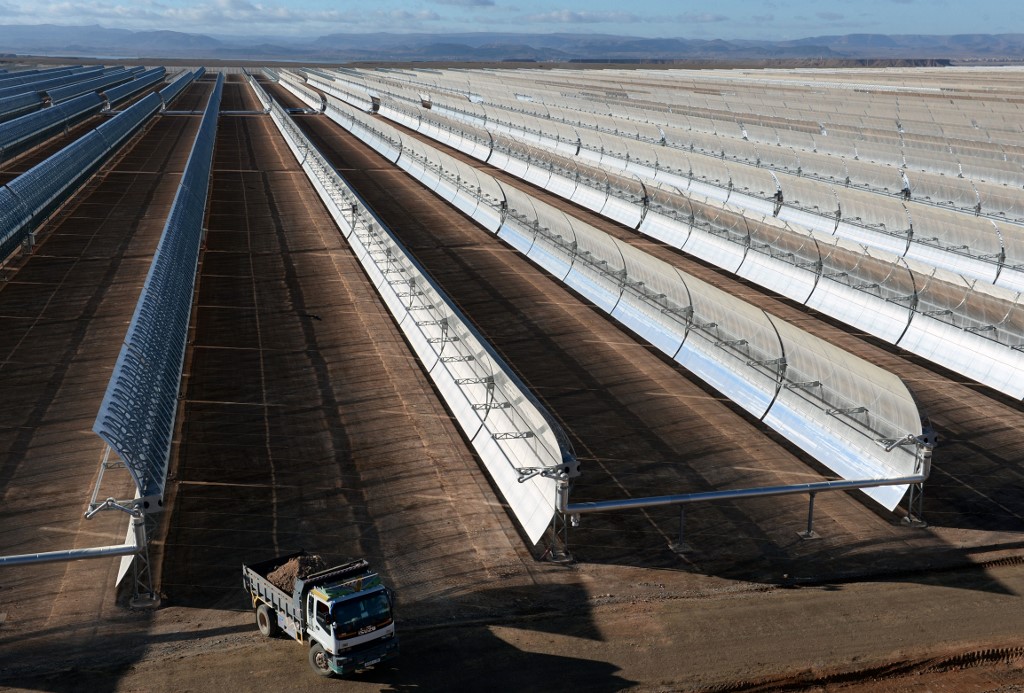Climate crisis: Green colonialism is a new form of empire
E conomic subjugation and imperialist domination have undermined the political and economic autonomy of the Arab region since the 19th century.
In the same way, knowledge production about, and representations of Arab people and their environments have been used by colonial powers to legitimate their colonial projects and imperial goals.
Such strategies of domination continue today, as countries in the region are being recast (once again) as objects of development, echoing the colonial mission civilisatrice ("civilising mission").
Diana K Davis argues that Anglo-European environmental imaginaries in the 19th century represented the environment in the Arab world most often as "alien, exotic, fantastic, or abnormal, and frequently as degraded in some way".
She aptly uses Edward Said’s concept of orientalism as a framework to interpret early western representations of the Middle Eastern and North African environment as displaying a form of "environmental orientalism".
The environment was narrated by those who became the imperial powers, primarily Britain and France, as a "strange and defective" environment compared to Europe’s "normal and productive" environment. This implied the need for some kind of intervention "to improve, restore, normalise and repair" it.
This deceptive representation of presumed environmental degradation and ecological disaster was used by colonial authorities to justify all sorts of dispossession, as well as policies designed to control the populations of the region and their environments.
False narrative
In North Africa, the French constructed an environmental narrative of degradation in order to implement "dramatic economic, social, political and environmental changes". According to this perspective, the natives and their environments warranted the blessings of the "mission civilisatrice" and required the attentions of the white man.
Narratives are always the product of their historical moment and are never innocent, and therefore one always needs to ask: for whose benefit do knowledge production, representations and narratives work?
One glaring contemporary example is the current representation of the North African Sahara, which is usually described as a vast, empty and dead land that is sparsely populated, representing an Eldorado of renewable energy, thus constituting a golden opportunity to provide Europe with cheap energy so it can continue its extravagant consumerist lifestyle and excessive energy consumption.
This false narrative overlooks questions of ownership and sovereignty and masks ongoing global relations of hegemony and domination that facilitate the plunder of resources, the privatisation of commons, and the dispossession of communities, thus consolidating undemocratic and exclusionary ways of governing the energy transition.
As in many places where working people’s lives and livelihoods are invisible or "illegible" to colonising states, "there is no vacant land" in North Africa; even when sparsely populated, traditional landscapes and territories are embedded in cultures and communities, and people’s rights and sovereignty must be respected in any socio-ecological transformation.
Structures of domination
It is crucial to analyse the mechanisms by which the Other is dehumanised and how the power of representing and constructing imaginaries about them (and their environments) is used to entrench structures of power, domination and dispossession.
In this regard, what is described in Said’s Orientalism as "disregarding, essentialising, denuding the humanity" of another culture, people or geographical region continues today to be employed to justify violence towards the Other and towards nature.
Resisting and dismantling the orientalist environmental narrative on North Africa will both enable and require building visions of collective climate action
This violence takes the shape of displacing populations, grabbing land and resources, making people pay for the social and environmental costs of extractive and renewable projects, bombing, massacring, letting people drown in the Mediterranean, and destroying the Earth in the name of progress.
As Naomi Klein eloquently put it in her 2016 Edward Said Lecture, when describing a white-supremacist-racist culture: "A culture that places so little value on black and brown lives, that is willing to let human beings disappear beneath the waves, or set themselves on fire in detention centres, will also be willing to let the countries where black and brown people live disappear beneath the waves, or desiccate in the arid heat."
And it won’t blink an eye when it places catastrophic socio-environmental costs onto the poor in these countries.
Resisting and dismantling the orientalist and neocolonial environmental narrative on North Africa will both enable and require building visions of collective climate action, social justice, and socio-ecological transformation that are rooted in the experiences, analysis and emancipatory visions of the African and Arab regions and beyond.
This is an extract from a collection of essays entitled "Just Transition in North Africa" and published by the Transnational Institute (TNI). The essays can be found here.
The views expressed in this article belong to the author and do not necessarily reflect the editorial policy of Middle East Eye.
https://www.middleeasteye.net/opinion/climate-crisis-green-colonialism-form-empire-new



0 Comments:
Post a Comment
Subscribe to Post Comments [Atom]
<< Home